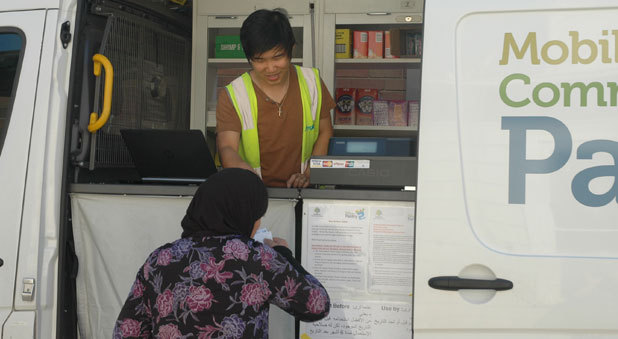With interest rates rising to 10-year highs, big jumps in the family grocery bill, people struggling to secure affordable rental homes and a mortgage cliff approaching for those on fixed term interest rates, poverty knows no postcode and the cost of living crisis has left no wallet untouched.
Anglicare isn’t able to provide exact figures on the increase in demand for its food and financial assistance services because its teams are swamped simply trying to meet people’s needs..
“We’re on the verge of being overwhelmed,” said Anglicare’s head of corporate communications, Aaron Malouf. “There is a lot of increase in people seeking out our services. There is a brand new queue of people [with] mortgage stress. It’s no longer a fact that people seeking social welfare assistance and food and financial assistance are located in the west and the southwest – they’re coming from all over Sydney at the moment.
“The Reserve Bank said that one in 10 people with mortgages are in stress, but I would say that’s an underestimate. We are having to deal with more people who want to lean on our services to help negotiate for them to defer mortgage or rent payment schemes. Our resources are stretched to the limit.”
Our main challenge
The number one financial concern for people in churches is meeting their household budgets, with the cost of rent or mortgage – plus inflation – squeezing more money out of their pockets.
Arya Darmaputra from Thesauros Consulting believes the main challenge for Christians is to maintain a heart of gratitude and to avoid complaining. “Yes, the standard of living is deteriorating, but the Bible teaches us to pray and seek God for our daily bread,” he says. “If God grants us enough food on the table and a roof over our heads, we should be grateful. We don’t need to wait until we are exceedingly wealthy to give thanks.
“We have not gone through a drop in living standards in the past 30 years, so this is tough and unexpected. But objectively, if you’re living in Sydney, you are living in one of the most prosperous societies in the world. We need to be thankful to God for providing us with our daily necessities.”
He adds that some Christians are benefiting from the present situation, as they have no debt and have money in the bank. “The challenge for them is not to view the situation and be self-gratifying or proud and say, ‘Look how wise I am with money’,” he says. “That is an attitude of pride. They should be more sensitive to other people. Most people in their churches are suffering and struggling – they should see how they can be more generous towards them.”
Money and the kingdom
The budgeting advice Mr Darmaputra offers begins with comparing income and necessities. “If you have money left over, you should stop and give the Lord thanks,” he says. “If you have your necessities sorted out, discretionary spending and entertainment can come after.”
For those struggling to pay the bills, he advises them to sit down and clarify their basic necessities – food, housing and utilities – and make quick adjustments if there’s a shortfall.
“For groceries, do you need to ask for food hampers or visit a food pantry?” he asks. “The tough question is, can you keep living in the place you are currently renting, or do you need to downsize or move to a smaller place or a suburb further away that’s cheaper? Those are tough questions that you may need to grapple with. Unfortunately there is no quick or easy solution for those.”
Tithing and giving
Rather than “10 per cent” giving, Thesauros Consulting has three principles of financial stewardship. First, that God is the owner and we are the stewards of what he has entrusted to us. Second, it is right to spend God’s money on our daily necessities, and third, we should seek his kingdom first.
There are times when it may be right and appropriate to take a pause from giving, especially if your financial circumstances are dire. But this is not a decision to be made lightly. “If you have money to go on holidays, or go to a cafe or out for coffee then you have money to give to the kingdom,” Mr Darmaputra says. “Find a balance between entertainment spending and your giving that’s an expression of generosity and of seeking the kingdom first with your finances.”
He adds that those who have been given extra also have the responsibility to look out for others. “Take a moment and ask how people are in your small groups. If we have the capacity to be generous, that is a place where we can ask how people are doing. Most people can’t help with paying a mortgage or rent, but we can lighten the burden in other ways, such as groceries, clothes or toys. If everyone does that, as a church there shouldn’t be anyone who feels left out.”
We can also serve by encouraging people to reach out to those who can assist.
Says Mr Malouf: “What the parishes do for us is take the stigma [away for] people who could not perceive that they needed this help. That is the primary role of the parishes as they refer parishioners and others in their community to our services.
“The greatest thing is that they are able to bring people into our fold and that sense of confidentiality that we do offer, and they take the stigma and embarrassment out of it. That’s the greatest impact that happens at a parish level.”





















